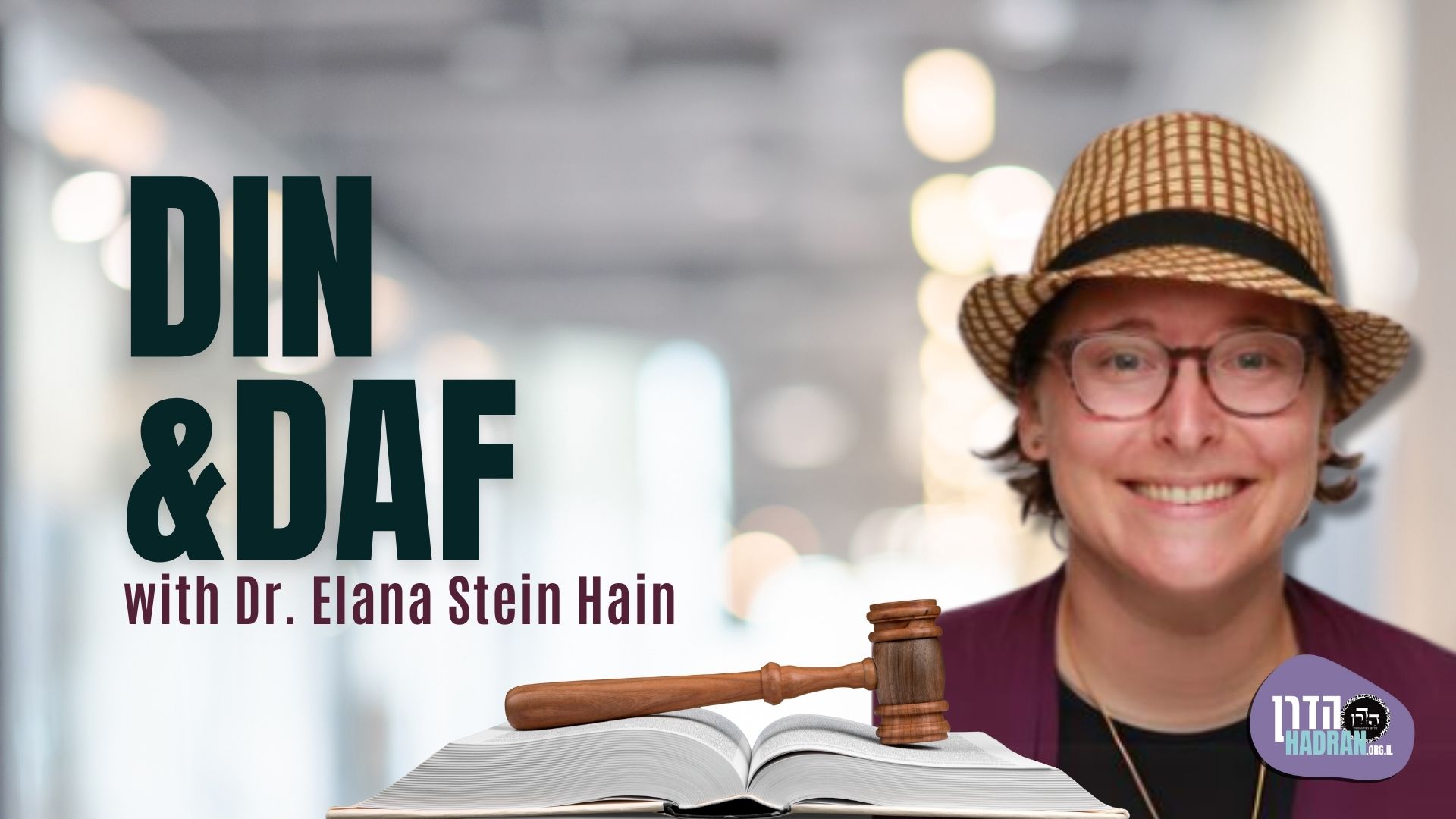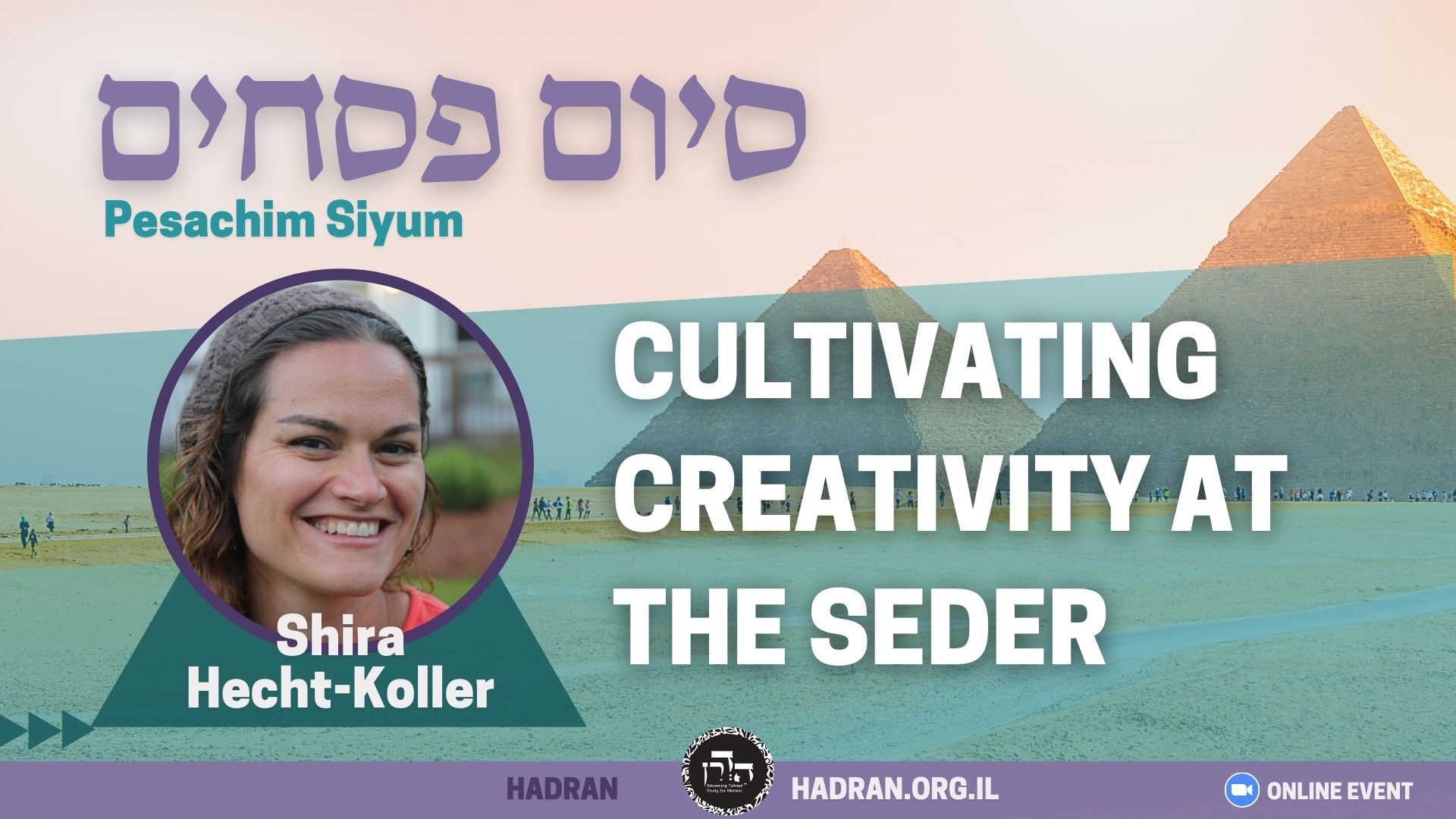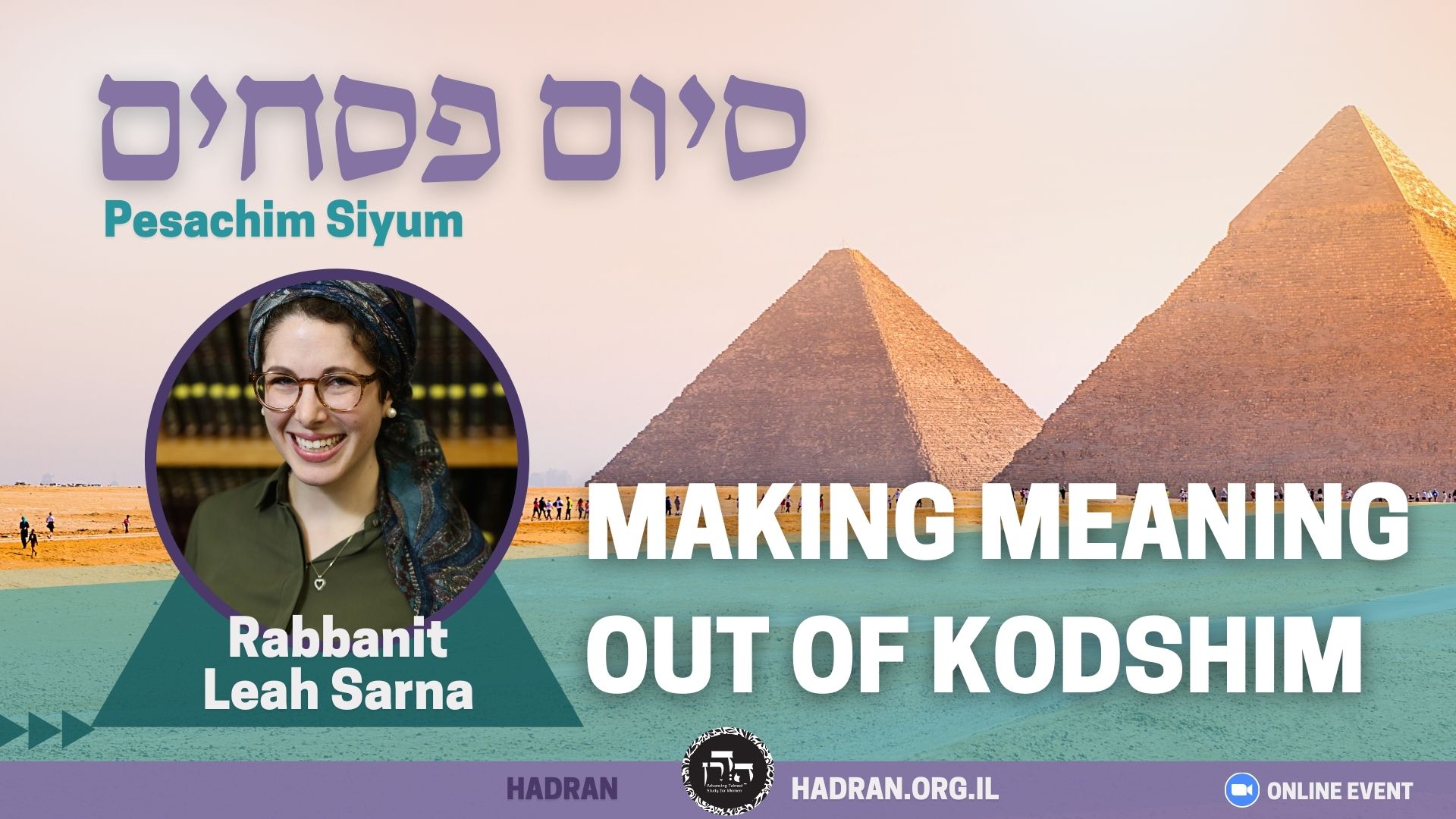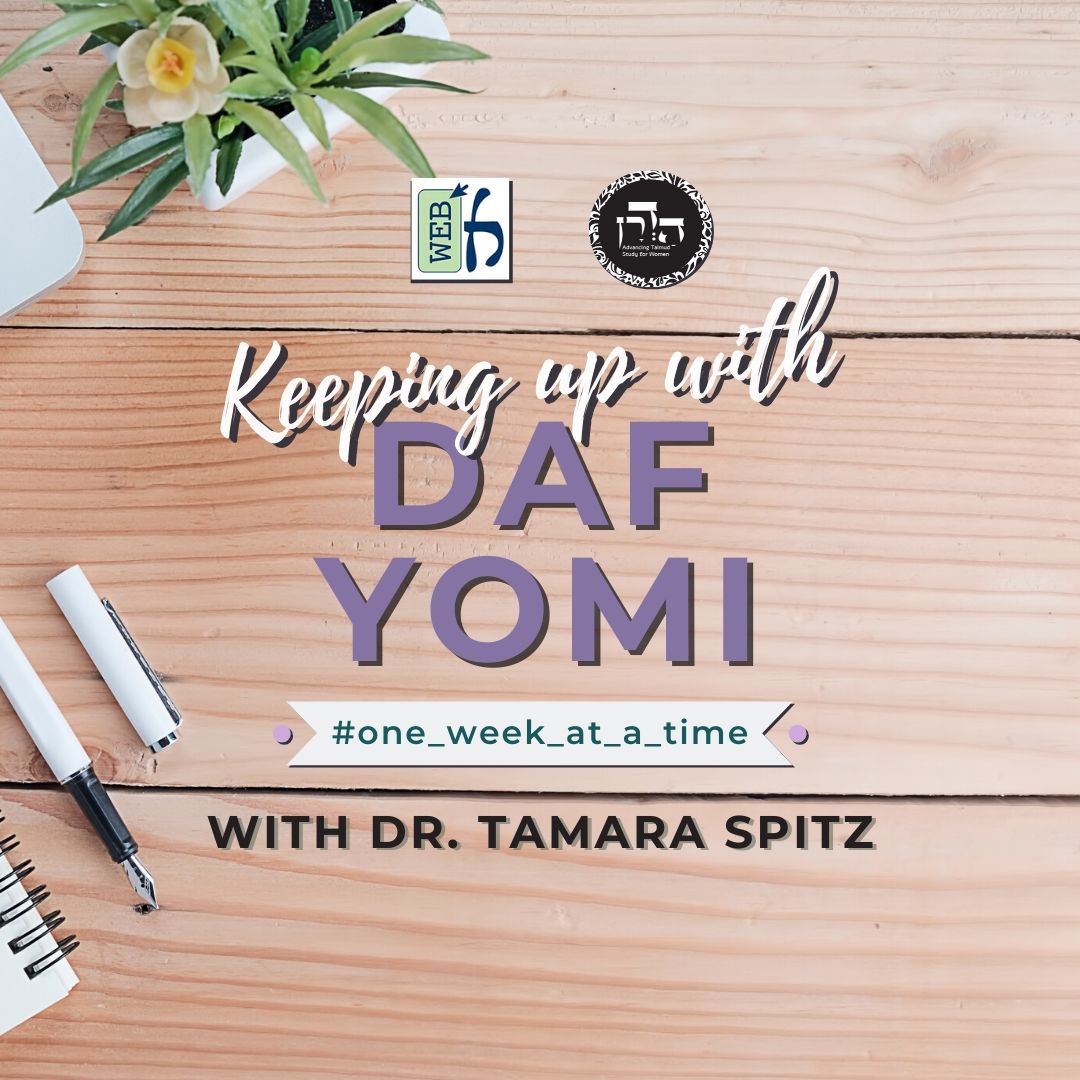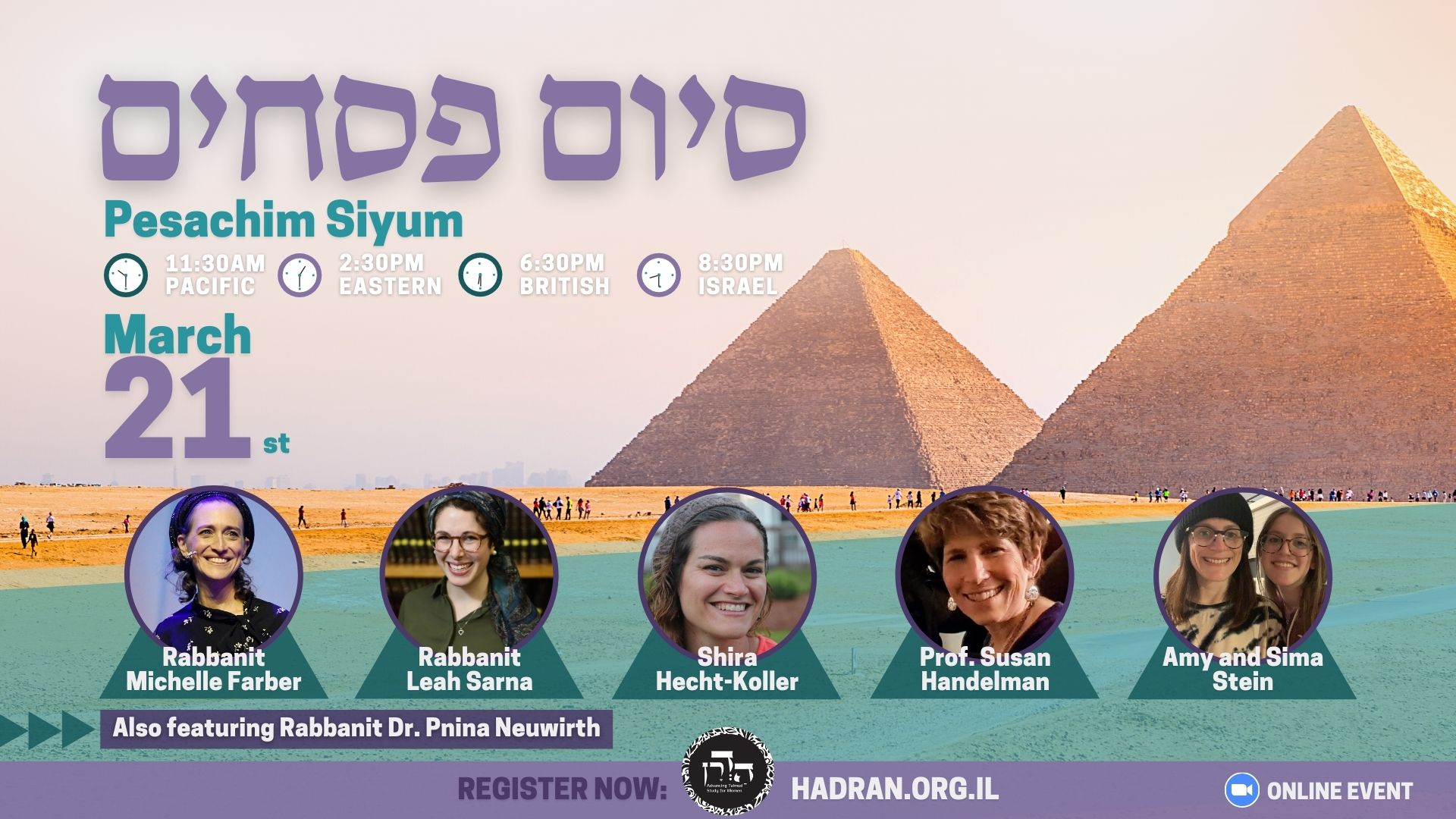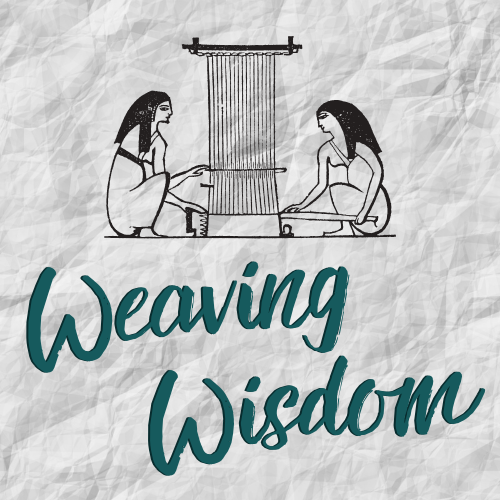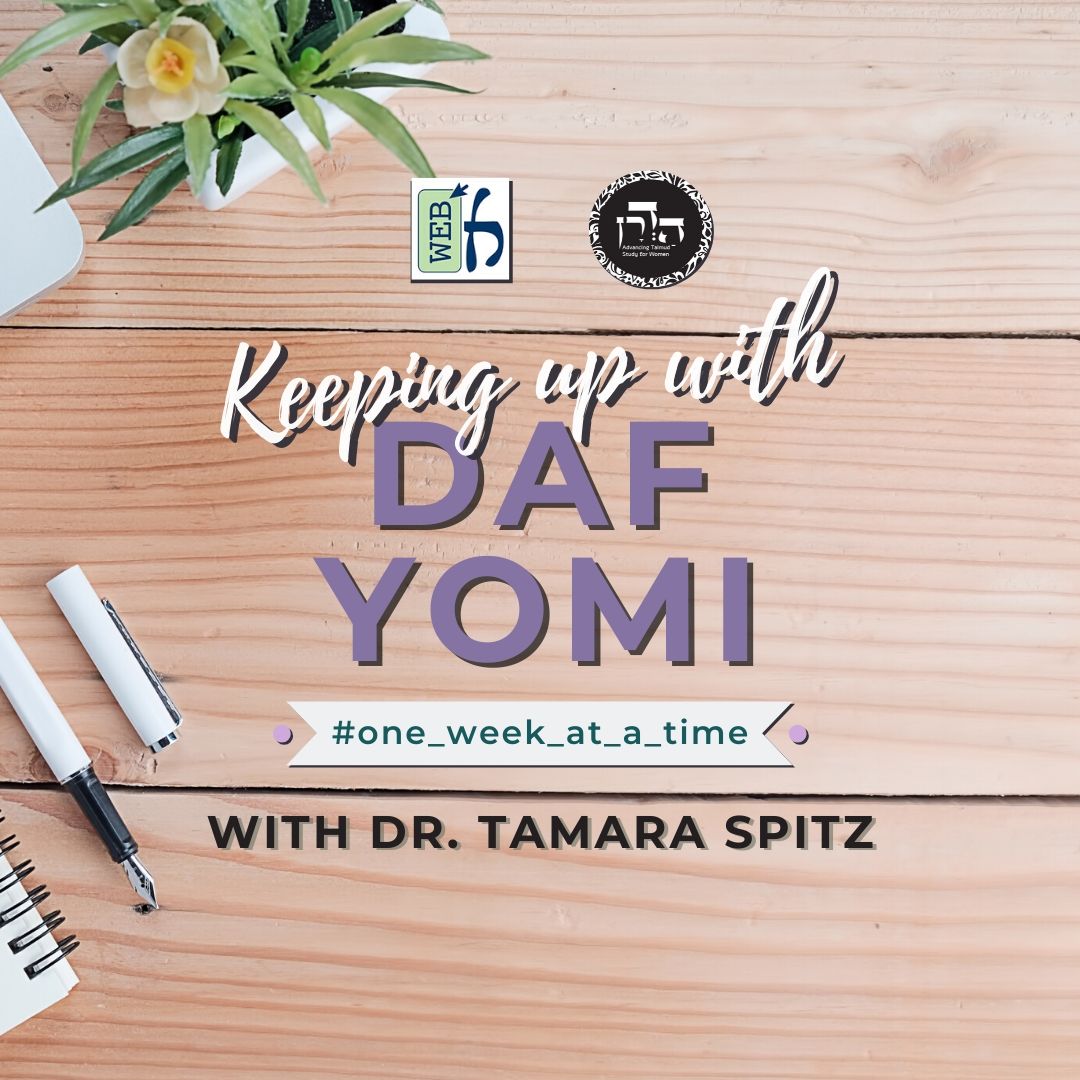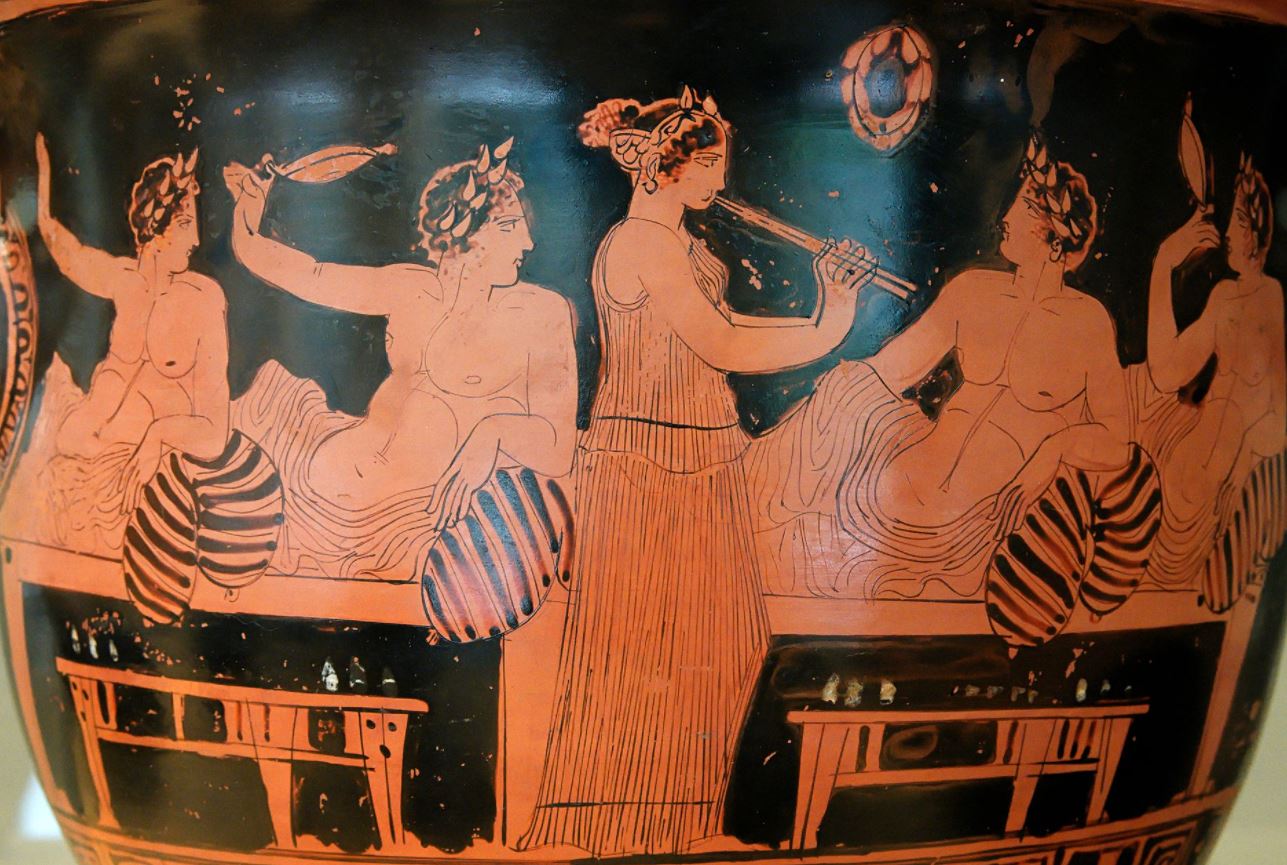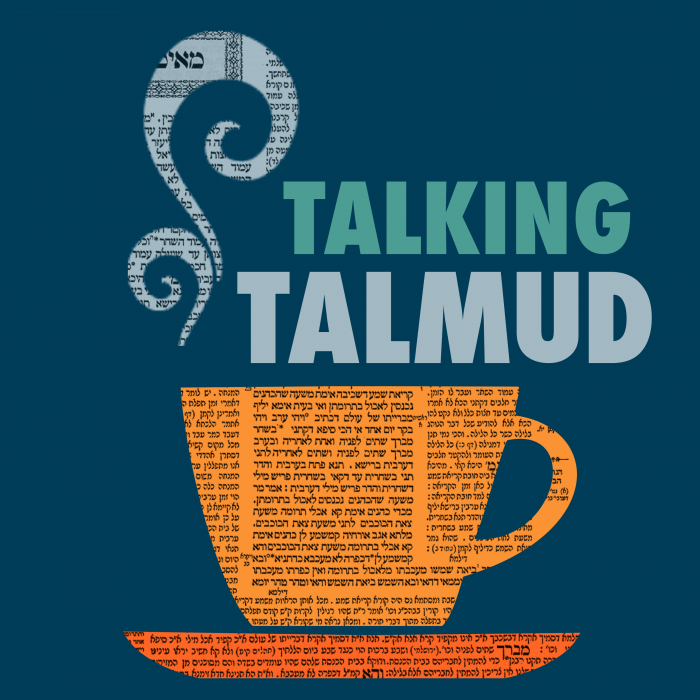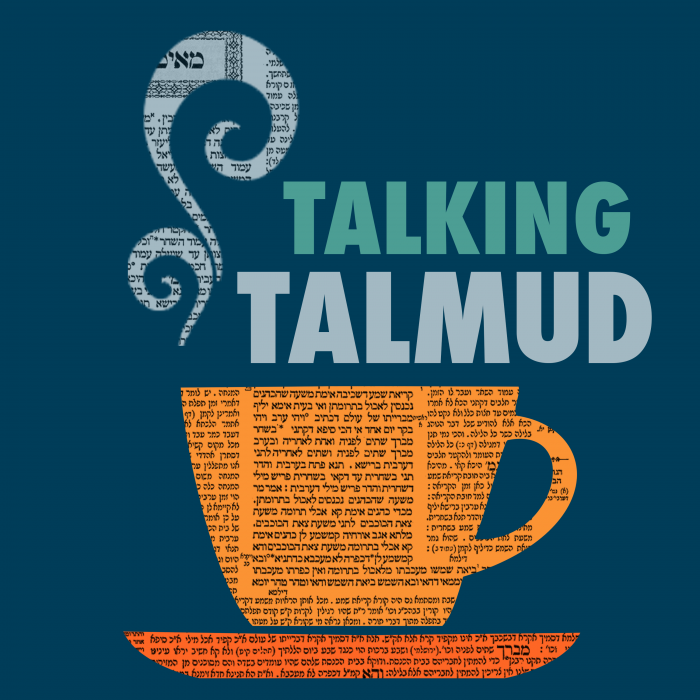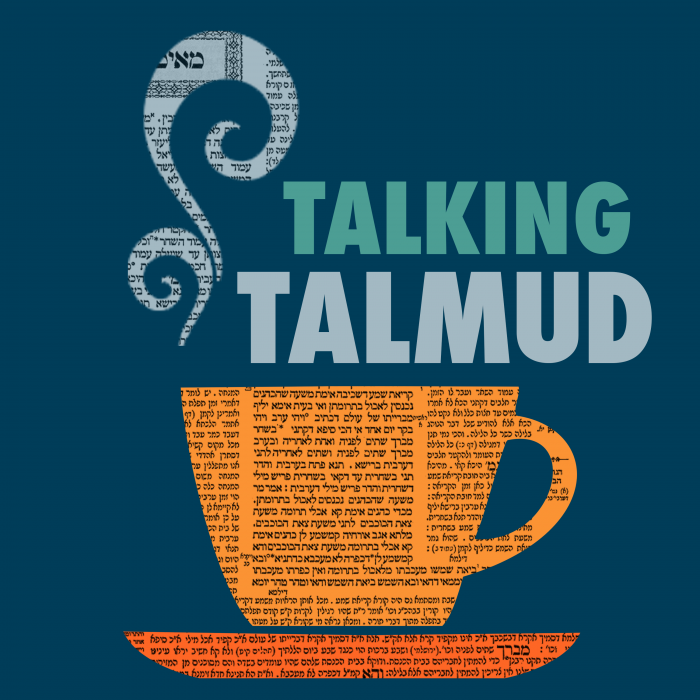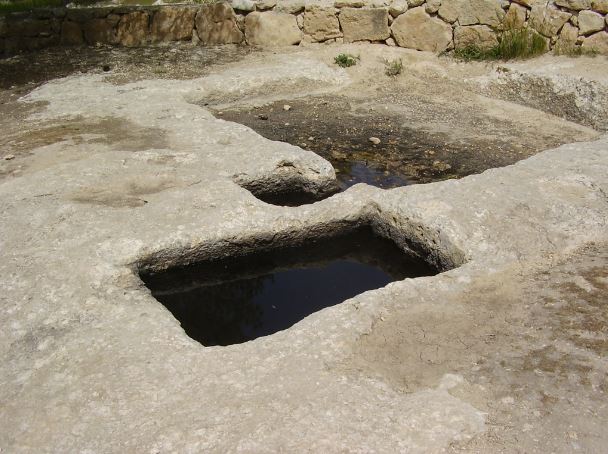Pesachim 33
הֵזִיד בִּמְעִילָה בְּמִיתָה — רַבִּי הִיא, דְּתַנְיָא: הֵזִיד בִּמְעִילָה, רַבִּי אוֹמֵר: בְּמִיתָה, וַחֲכָמִים אוֹמְרִים: בָּאַזְהָרָה.
that one who intentionally misuses consecrated items is liable to receive death at the hand of Heaven? It is Rabbi Yehuda HaNasi. As it was taught in a baraita: With regard to one who intentionally misuses consecrated items, Rabbi Yehuda HaNasi says that he is liable to receive death at the hand of Heaven. The Rabbis say: he violates a warning, a standard prohibition, and is flogged.
מַאי טַעְמָא דְּרַבִּי? אָמַר רַבִּי אֲבָהוּ: גָּמַר ״חֵטְא״ ״חֵטְא״ מִתְּרוּמָה. מָה תְּרוּמָה בְּמִיתָה — אַף מְעִילָה בְּמִיתָה.
The Gemara asks: What is the reason for the opinion of Rabbi Yehuda HaNasi? From where does he derive his opinion? Rabbi Abbahu said: He derives it by means of a verbal analogy between the word sin stated with regard to misuse of consecrated items and the word sin stated with regard to teruma. With regard to misuse of consecrated items, the verse states: “If any one commits a trespass, and sins through error, in the sacred items of the Lord” (Leviticus 5:15); with regard to teruma, the verse states: “Lest they bear sin for it, and die due to it, if they profane it” (Leviticus 22:9). Rabbi Yehuda HaNasi makes the following comparison: Just as eating teruma is punishable by the death penalty, so too, misusing consecrated items is punishable by the death penalty.
וּמִינַּהּ: מָה תְּרוּמָה בִּכְזַיִת אַף מְעִילָה בִּכְזַיִת!
From this verbal analogy, the comparison between teruma and misuse of consecrated property can be extended to other issues as well: Just as one is punished only for eating at least an olive-bulk of teruma, so too, one is punished for misusing consecrated items only if there is at least an olive-bulk of consecrated items. This indicates that the baraita cannot be explained in accordance with the opinion of Abba Shaul, who requires that the item be worth at least a peruta.
וּמַתְקִיף לַהּ רַב פָּפָּא: מִמַּאי דְּרַבִּי כְּרַבָּנַן סְבִירָא לֵיהּ? דִּילְמָא כְּאַבָּא שָׁאוּל סְבִירָא לֵיהּ, דְּאָמַר: יֵשׁ בָּהּ שָׁוֶה פְּרוּטָה — אַף עַל גַּב דְּלֵית בַּהּ כְּזַיִת.
Rav Pappa strongly objects to Rav Sheshet and Rabba’s rejection of the explanation of the baraita: From where do you know that Rabbi Yehuda HaNasi holds in accordance with the opinion of the Rabbis that one is only punished after eating an olive-bulk of teruma? Perhaps he holds in accordance with the opinion of Abba Shaul, who said one is liable for eating teruma provided the food contains the value of a peruta of teruma, even if it is less than an olive-bulk. As the halakhot of misuse of consecrated items are derived from teruma, one is liable for eating both teruma and consecrated items only if the object is worth at least a peruta. As such, Rav Ḥiyya bar Avin’s explanation of the baraita should not be rejected.
וְהָא רַב פָּפָּא הוּא דְּאָמַר דְּאַבָּא שָׁאוּל תַּרְתֵּי בָּעֵי, אֶלָּא שְׁמַע מִינַּהּ: הֲדַר בֵּיהּ.
With regard to the issue mentioned previously, the Gemara asks: But isn’t Rav Pappa the one who said that Abba Shaul said that it requires two conditions, that the object be worth a peruta and that it be an olive-bulk in volume? Rather, learn from this that Rav Pappa retracted his statement with regard to Abba Shaul’s opinion.
מָר בְּרֵיהּ דְּרַבְנָא אָמַר, הָכִי קָאָמַר: לֹא! אִם אָמַרְתָּ בִּשְׁאָר מִצְוֹת — שֶׁלֹּא עָשָׂה בָּהֶן שֶׁאֵין מִתְכַּוֵּין כְּמִתְכַּוֵּין, שֶׁאִם נִתְכַּוֵּין לַחְתּוֹךְ אֶת הַתָּלוּשׁ וְחָתַךְ אֶת הַמְחוּבָּר — שֶׁפָּטוּר, תֹּאמַר בִּמְעִילָה, שֶׁאִם נִתְכַּוֵּין לְהִתְחַמֵּם בְּגִיזֵּי חוּלִּין וְנִתְחַמֵּם בְּגִיזֵּי עוֹלָה — שֶׁמָּעַל.
Mar, son of Rabbana, said the following to resolve the difficulty in the baraita: This is what it is saying: No, if you say that one is exempt from an offering with regard to the rest of the mitzvot, where acting without intent is not treated as though one acted with intent, i.e., if one intended to cut something that is detached from the ground on Shabbat, which is not prohibited by Torah law, and mistakenly cut something that is attached to the ground, then he is exempt because he acted without intent; shall you also say the same with regard to misuse of consecrated items, about which the halakha is stringent, such that if one intended to warm himself with non-sacred wool shearings, and owing to an error or lack of information he warmed himself with shearings from a burnt-offering, then he has misused consecrated property? Thus, misuse of consecrated property is more stringent than other commandments, in that one violates it even when acting without intent, and one cannot deduce the halakha in the case of misuse of consecrated property from the halakha in the case of the rest of the mitzvot.
רַב נַחְמָן בַּר יִצְחָק אָמַר, הָכִי קָאָמַר: לֹא! אִם אָמַרְתָּ בִּשְׁאָר מִצְוֹת, שֶׁכֵּן לֹא מִתְחַיֵּיב בָּהֶן שֶׁאֵין מִתְעַסֵּק כְּמִתְעַסֵּק, שֶׁאִם נִתְכַּוֵּין לְהַגְבִּיהַּ אֶת הַתָּלוּשׁ, וְחָתַךְ אֶת הַמְחוּבָּר — שֶׁפָּטוּר. תֹּאמַר בִּמְעִילָה, שֶׁאִם הוֹשִׁיט יָדוֹ לִכְלִי לִיטּוֹל חֵפֶץ וְסָךְ יָדוֹ בְּשֶׁמֶן שֶׁל קוֹדֶשׁ — שֶׁמָּעַל.
Rav Naḥman bar Yitzḥak said that the baraita should be understood differently, and this is what it is saying: No, if you say this leniency with regard to rest of the mitzvot, where one who is acting unawares is not liable in the same way as one who is acting aware of his actions, such as in a case where one intended to perform a permitted act and mistakenly performed a prohibited one, i.e., if one intended to lift something that is detached from the ground, but his knife happened to cut something that is attached to the ground, in violation of the act of harvesting on Shabbat, then he is exempt; shall you also say the same with regard to misuse of consecrated items, where if one places his hand in a vessel to take an object and unknowingly places his hand in consecrated oil then he has misused consecrated items? Therefore, misuse of consecrated items is more stringent than other commandments, as one commits the sin of misusing consecrated property even if he uses the consecrated object while attempting to perform a different action and is unaware that he is performing a prohibited act.
אָמַר מָר: בַּמֶּה דְּבָרִים אֲמוּרִים — בְּמַפְרִישׁ תְּרוּמָה וְהֶחְמִיצָה, אֲבָל הִפְרִישׁ חָמֵץ תְּרוּמָה — דִּבְרֵי הַכֹּל אֵינָהּ קְדוֹשָׁה.
The Master said above in the baraita: In what case is this statement said that the tanna’im disagree with regard to the obligation to pay for teruma of leavened bread? It is said with regard to a case where one separated teruma in a permitted manner and it became leavened during Passover. However, if he separated teruma from leavened bread during Passover, everyone agrees that it is not consecrated since it is worthless.
מְנָא הָנֵי מִילֵּי? אָמַר רַב נַחְמָן בַּר יִצְחָק, אָמַר קְרָא: ״תִּתֵּן לוֹ״ — וְלֹא לְאוּרוֹ.
The Gemara asks: From where are these matters derived, that a worthless item cannot be designated as teruma? Rav Naḥman bar Yitzḥak said that the verse states: “The first fruits of your grain, your wine, your oil, and the first of the fleece of your sheep, shall you give to him” (Deuteronomy 18:4), and not to his fire. One must give the priest something that he can use for any purpose, and not something that the priest will be forced to burn as fuel. Even those who permit one to derive benefit from leavened bread during Passover agree that it may not be eaten, and therefore leavened bread cannot be consecrated as teruma in this case.
מֵתִיב רַב הוּנָא בְּרֵיהּ דְּרַב יְהוֹשֻׁעַ: אֵין תּוֹרְמִין מִן הַטְּמֵאָה לַטְּהוֹרָה, וְאִם תָּרַם בְּשׁוֹגֵג — תְּרוּמָתוֹ תְּרוּמָה. וְאַמַּאי? לֵימָא: ״לוֹ״ וְלֹא לְאוּרוֹ! לָא קַשְׁיָא: הָתָם הָיְתָה לוֹ שְׁעַת הַכּוֹשֶׁר, הָכָא לֹא הָיְתָה לוֹ שְׁעַת הַכּוֹשֶׁר.
Rav Huna, son of Rav Yehoshua, raised an objection based on that which was taught in a mishna: One may not separate teruma from ritually impure produce for ritually pure produce, but if one unwittingly separated it in this manner then his teruma is valid teruma. And why should this be valid teruma? Let the priest say: The verse requires that the teruma be given “to him” and not to his fire, and this ritually impure teruma must be burned. In that case, why should this produce actually become teruma? The Gemara answers: This is not difficult. There, in the case of impure teruma, it had a period of fitness, and it could have been given as teruma before it became impure. Here, in the case of leavened bread, it did not ever have a period of fitness, and therefore it cannot be consecrated as teruma.
וּדְלֹא הָיְתָה לוֹ שְׁעַת הַכּוֹשֶׁר, הֵיכִי דָּמֵי? כְּגוֹן דְּאַחְמֵיץ בִּמְחוּבָּר. אֲבָל אַחְמֵיץ בְּתָלוּשׁ — הָכִי נָמֵי דְּקָדְשָׁה? אֲמַר לֵיהּ: אִין, ״בִּגְזֵירַת עִירִין פִּתְגָמָא וּבְמֵאמַר קַדִּישִׁין שְׁאֵילְתָא״, וְכֵן מוֹרִין בְּבֵי מִדְרְשָׁא כְּווֹתִי.
The Gemara asks: What are the circumstances in which this leavened bread did not have a period of fitness even on Passover? This could have happened only in a case where it became leavened while it was still attached to the ground and could not yet become teruma. However, if it became leavened after being detached from the ground, then can this leavened bread indeed become consecrated as teruma, even though the baraita indicates that no leavened bread can be designated as teruma during Passover? Rav Naḥman bar Yitzhak said to Rav Huna, son of Rav Yehoshua: Yes, this is indeed the case despite this puzzling limitation, and the biblical expression can be applied homiletically: “The matter is by the decree of the watchers, and the sentence by the word of the sacred ones” (Daniel 4:14). The Sages, who are compared to celestial beings, agree with my statement. And so too, in the study hall, they teach in accordance with my opinion, despite the puzzling nature of this ruling.
כִּי אֲתָא רַב הוּנָא בְּרֵיהּ דְּרַב יְהוֹשֻׁעַ,
When Rav Huna, son of Rav Yehoshua, came,
אָמַר: אָמַר קְרָא ״רֵאשִׁית״ — שֶׁשְּׁיָרֶיהָ נִיכָּרִין לְיִשְׂרָאֵל, יָצְתָה זוֹ שֶׁאֵין שְׁיָרֶיהָ נִיכָּרִין.
he said that the verse states: “The first fruits of your grain, your wine, your oil, and the first of the fleece of your sheep, shall you give him” (Deuteronomy 18:4), implying that its remnants are recognizable for an Israelite, as the notion of a first part indicates that there is another portion remaining which is fit to be consumed by the Israelite. This teruma is excluded as there is no recognizable remnant left that may be consumed by the Israelite, because it is leavened bread. Since even after this portion has been separated the remainder of the produce may not be eaten, that which was separated does not become teruma.
יָתֵיב רַב אַחָא בַּר רַב עַוְיָא קַמֵּיהּ דְּרַב חִסְדָּא, וְיָתֵיב וְאָמַר מִשְּׁמֵיהּ דְּרַבִּי יוֹחָנָן: עֲנָבִים שֶׁנִּטְמְאוּ — דּוֹרְכָן פָּחוֹת פָּחוֹת מִכְּבֵיצָה, וְיֵינָן כָּשֵׁר לִנְסָכִין. אַלְמָא קָסָבַר: מַשְׁקִין מִיפְקָד פְּקִידִי, לְאֵימַת קָא מִיטַּמְּאִי — לְכִי סָחֵיט לְהוּ. לְכִי סָחֵיט לְהוּ לֵיתֵיהּ לְשִׁיעוּרֵיהּ.
Rav Aḥa bar Rav Avya sat before Rav Ḥisda, and he sat and said in the name of Rabbi Yoḥanan: With regard to grapes that became ritually impure, one should tread on them less than an egg-bulk at a time, and the wine that comes from them is kosher even for libations because it is ritually pure. Apparently Rabbi Yoḥanan holds: The liquid is stored inside the grape, as the juice is not considered to be part of the grape itself but rather stored in the grape as though contained in a receptacle. According to Rabbi Yoḥanan’s opinion, when do these liquids become ritually impure? This occurs only when one squeezes them, and prior to this the juice remains pure even if the grape was impure. And when one squeezes them, there is less than the minimum measure of grape flesh that would transfer ritual impurity, as food can impart ritual impurity only if it is at least an egg-bulk in size.
אִי הָכִי, כְּבֵיצָה נָמֵי? דְּהָתְנַן: טְמֵא מֵת שֶׁסָּחַט זֵיתִים וַעֲנָבִים כְּבֵיצָה מְכֻוֶּונֶת — טְהוֹרִין! הָתָם — דְּאִי עֲבַד, הָכָא — לְכַתְּחִלָּה. גְּזֵירָה דִּילְמָא אָתֵי לְמֶיעְבַּד יוֹתֵר מִכְּבֵיצָה.
The Gemara challenges this statement: If that is so, then even if he squeezes an egg-bulk of grapes, the juice will still not become impure. Didn’t we learn in a mishna: In the case of one who is ritually impure with impurity imparted by a corpse and who squeezed olives or grapes in the exact amount of an egg-bulk, the liquid is ritually pure. Once the first drop of liquid is squeezed out, less than an egg-bulk of food remains, and it cannot render the liquid impure. In that case, why did Rabbi Yoḥanan permit squeezing only less than an egg-bulk? The Gemara answers: There, it was speaking of a case where the ruling was after the fact; however, here, it is discussing the ruling ab initio, and the mishna states that one may press juice only from less than an egg-bulk of grapes due to a rabbinic decree lest one come to perform the act of squeezing on more than an egg-bulk, causing the liquid to become impure.
אֲמַר לֵיהּ רַב חִסְדָּא: מַאן צָיֵית לָךְ וּלְרַבִּי יוֹחָנָן רַבָּךְ? וְכִי טוּמְאָה שֶׁבָּהֶן לְהֵיכָן הָלְכָה? אַלְמָא קָא סָבַר: מַשְׁקִין מִיבְלָע בְּלִיעִי. וְכֵיוָן דְּאִיטַּמּוֹ לֵיהּ אוּכְלָא, אִיטַּמּוֹ לֵיהּ מַשְׁקִין.
Rav Ḥisda said to Rav Aḥa bar Rav Avya: Who will listen to you and to Rabbi Yoḥanan your teacher with regard to this issue? As, where did the impurity that was in the grape juice go? The Gemara notes that apparently Rav Ḥisda holds: Liquids are absorbed within the fruit and are therefore considered to be part of the grape itself. And since the flesh of the grape became ritually impure, the liquid became ritually impure as well.
אֲמַר לֵיהּ: וְאַתְּ לָא תִּיסְבְּרָא דְּמַשְׁקִין מִיפְקָד פְּקִידִי? וְהָתְנַן: טְמֵא מֵת שֶׁסָּחַט זֵיתִים וַעֲנָבִים מְכֻוֶּונֶת כְּבֵיצָה — טְהוֹרִין. אִי אָמְרַתְּ בִּשְׁלָמָא מִיפְקָד פְּקִידִי — מִשּׁוּם הָכִי טְהוֹרִין, אֶלָּא אִי אָמְרַתְּ מִיבְלָע בְּלִיעִי — אַמַּאי טְהוֹרִין?
Rav Aḥa said to him: Do you not hold that liquids are stored inside the grape? Didn’t we learn in the mishna: In the case of one who is ritually impure with impurity imparted by a corpse and who squeezed olives or grapes in the exact amount of an egg-bulk, using a flat wooden utensil without touching the liquid itself, the liquid is ritually pure. Granted, if you say that the juice is stored inside the grapes, then it is due to that reason that the liquid is pure. But if you say that the liquid is absorbed within the grapes, why is the juice pure? According to this opinion, once the grape itself becomes impure, the juice, which is attached to it and absorbed in it, becomes impure as well.
אֲמַר לֵיהּ: הָכָא בְּמַאי עָסְקִינַן, בַּעֲנָבִים שֶׁלֹּא הוּכְשְׁרוּ. לְאֵימַת מִתַּכְשְׁרִי? לְכִי סָחֵיט לְהוּ. כִּי סָחֵיט לְהוּ — בְּצִיר לְהוּ שִׁיעוּרָא. דְּאִי לָא תֵּימָא הָכִי, הָא דְּתַנְיָא: הָא לְמָה זֶה דּוֹמֶה — לִתְרוּמַת תּוּתִין (זֵיתִים) וַעֲנָבִים שֶׁנִּטְמְאָה, שֶׁאֵין לוֹ בָּהּ לֹא הֶיתֵּר אֲכִילָה וְלֹא הֶיתֵּר הַסָּקָה. הָא הֶיתֵּר אֲכִילָה נָמֵי אִית בֵּיהּ, דְּאִי בָּעֵי דָּרֵיךְ לְהוּ פָּחוֹת פָּחוֹת מִכְּבֵיצָה.
Rav Ḥisda said to him: With what are we dealing here? We are dealing with a case where the grapes have not been rendered susceptible to ritual impurity, since they have not come in contact with liquids. When do they become susceptible to ritual impurity? This is only once one presses them and they become wet with their own juice. However, when he presses them, they decrease in volume and are lacking the measure of volume required to become impure. This must be the explanation, for if you do not say so, it is difficult to reconcile this mishna with that which was taught in the baraita cited above: To what may this case of teruma of leavened bread be compared? It may be compared to teruma of berries, olives, and grapes that became impure, which can neither be eaten nor burned. However, according to Rabbi Yoḥanan’s statement they may even be eaten, as if one wishes he may tread less than an egg-bulk at a time.
אָמַר רָבָא: גְּזֵירָה דִּילְמָא אָתֵי בְּהוּ לִידֵי תַקָּלָה. אֲמַר לֵיהּ אַבָּיֵי: וּמִי חָיְישִׁינַן לְתַקָּלָה? וְהָא תַּנְיָא: מַדְלִיקִין בְּפַת וּבְשֶׁמֶן שֶׁל תְּרוּמָה שֶׁנִּטְמֵאת. אֲמַר לֵיהּ: פַּת — זָרֵיק לֵיהּ בֵּין הָעֵצִים. שֶׁמֶן שֶׁל תְּרוּמָה — רָמֵי לֵיהּ בִּכְלִי מָאוּס.
Rava said: It is possible to reject this proof, as even if this action is permitted in principle, there is a rabbinic decree prohibiting it lest he encounter a stumbling block. If one keeps ritually impure fruit of teruma in order to press it for its juice, it is possible that he will forget its status and accidentally eat it. Abaye said to him: Are we concerned about this type of stumbling block? Wasn’t it taught in a baraita: One may light a fire with bread and oil of teruma that became ritually impure? It can be deduced from this baraita that there is no concern that a person will forget and eat these foods. Rava said to him: Bread is only permitted when one throws it among the wood used for fuel so that it is ruined and no longer considered edible. Teruma oil is permitted only when one puts it into a repulsive vessel so that no one will drink it.
גּוּפָא: מַדְלִיקִין בְּפַת וּבְשֶׁמֶן שֶׁל תְּרוּמָה שֶׁנִּטְמֵאת. אַבָּיֵי אָמַר מִשְּׁמֵיהּ דְּחִזְקִיָּה, וְרָבָא אָמַר דְּבֵי רַבִּי יִצְחָק בַּר מָרְתָא אָמַר רַב הוּנָא: לֹא שָׁנוּ אֶלָּא פַּת, אֲבָל חִיטֵּי — לֹא, שֶׁמָּא יָבֹא בָּהֶן לִידֵי תַּקָּלָה. וְרַבִּי יוֹחָנָן אָמַר: אֲפִילּוּ חִיטֵּי. וְאַמַּאי? נֵיחוּשׁ דִּילְמָא אָתֵי בָּהֶן לִידֵי תַּקָּלָה! כִּדְאָמַר רַב אָשֵׁי:
With regard to the matter itself, it was taught: One may light with bread and oil of teruma that became ritually impure. The Sages limited the application of this halakha, as Abaye said in the name of Ḥizkiya and Rava said in the name of the Sages from the school of Rabbi Yitzḥak bar Marta that Rav Huna said: They taught that one may use impure teruma as firewood only with regard to bread; however, with regard to wheat, no, one may not light a fire with it, lest one encounter a stumbling block and eat it, because wheat will not become inedible by being placed among the firewood. And Rabbi Yoḥanan said: Even wheat may be used as fuel. The Gemara asks: And why does he permit this? Let us be concerned lest he encounter a stumbling block. The Gemara answers based on what Rav Ashi said with regard to a different issue:



